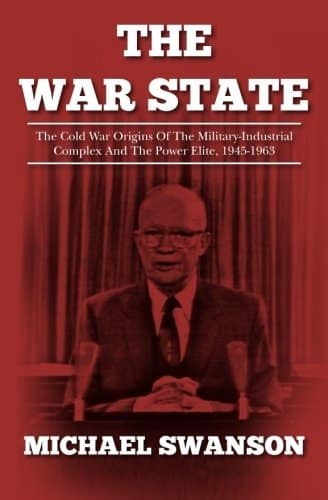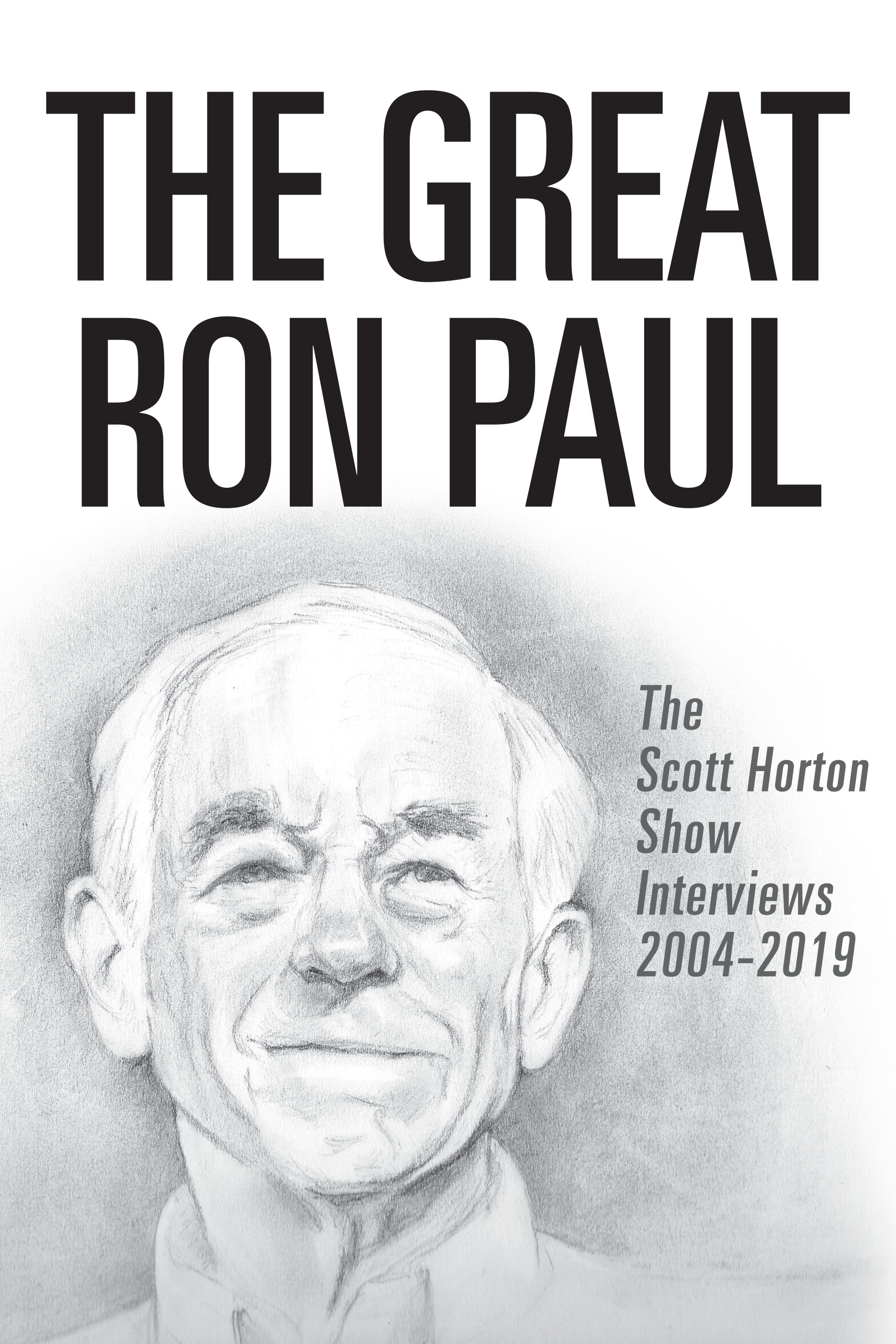Mark Thornton returns to the show to discuss his latest articles for the Mises Institute "The Real Cause of America's Opioid Epidemic" and "Big Pharma Makes Drugs that Please Regulators, Not Customers." Thornton makes the case for why legalizing heroin—and all drugs—would be a major step towards solving the opioid crisis. Instead, because of FDA regulations, doctors and pharmaceutical companies are not held liable for the awful consequences of their use. According to Thornton, and counter to...
10/30/17 Trevor Thrall on ending the war on terror
Cato Institute senior fellow Trevor Thrall joins Scott to discuss his article for War On The Rocks, "Time to Step Back from the War on Terror." Thrall's piece details how the U.S. war on terror has been a failure and raises the question "what if we abolish the war on terror?" Thrall's solution begins by, in the first place, stopping the constant interventions in the first place. Thrall believes that, at the root of the problem, is the fact that America believes it needs to control everything,...
10/27/17 Gareth Porter deconstructs Trump’s decision to decertify the Iran Deal
Gareth Porter returns to the show to discuss his latest article for The American Conservative "Trump Trashes Iran Deal to Satisfy Netanyahu." Porter discusses Trump's goal to convince Congress to pass new sanctions against Iran and explains why, even if the United States breaks the deal, Iran may have incentives to remain in the deal. Porter and Scott then take a trip back down memory road to the outset of the Iraq War and the role Iran played in helping push the U.S. gears into war. The two...
10/27/17 Patrick Cockburn on Iraqi Kurdistan and the liberation of Raqqa
Patrick Cockburn joins Scott from Baghdad to discuss the liberation of Raqqa from ISIS and the battle in Kirkurk between the Iraqi army and Peshmerga. Cockburn describes how ISIS is still in business as a guerrilla force, but the caliphate has been destroyed. Cockburn further details which powers in the region have gained in influence and power and who faces even more pressure—in particular the Kurds, who have seen major losses since the referendum for independence, which Cockburn believes was...
10/27/17 Matthew Hoh reflects on Afghanistan then and now
Whistleblower Matthew Hoh returns to the show to discuss the Afghanistan War, what's changed and what's stayed the same. Hoh recalls how he challenged the U.S. war party by speaking out against the Afghan War during Obama's surge, why Obama's—and every other president's—Afghan policy has failed, and how the failings were obvious from the outset. Hoh then touches on the reportedly expanded role of the CIA in tracking the Taliban and the United States's disastrous partnership with the Afghan...
10/26/17 Kate Kizer on H.Con.Res.81 and how to end the war in Yemen
Kate Kizer, the Director of Policy and Advocacy at The Yemen Peace Project joins Scott to discuss H.Con.Res.81 which is attempting to "remove U.S. Armed Forces from hostilities in the Republic of Yemen." The resolution may be voted on as soon as Friday, November 3rd despite the efforts of some members, including Paul Ryan, to prevent the bill from coming to the floor. Kizer explains why she's optimistic that the bill will pass as momentum continues to grow as it's been delayed—but that every...
10/26/17 Trita Parsi on the recently decertified Iran Deal
Trita Parsi returns to the show to discuss the Trump administration's decision to decertify the Iran Deal and what comes next. Parsi outlines how the Trump administration is going to follow the path of the Iraq War by cooking intelligence and making claims of ties between the Iranians and al Qaeda. Ultimately Parsi believes this will come down to whether the American people believe the lies the White House is peddling. Trita Parsi is the president of the National Iranian American Council and...
10/25/17 Nasser Arrabyee updates the U.S.-Saudi War in Yemen
Nasser Arrabyee returns to the show and updates the fighting in Yemen where Saudi airstrikes continue throughout the country, including in Sana'a. Arrabyee explains how Yemen has devolved into a mess of conflicting tribal and national interests. Scott introduces H.Con.Res.81 and explains what you can do to help stop the U.S. war in Yemen, which has, among other things led to nearly a million cases of cholera infections in the country. There are two different kinds of people being killed every...
10/13/17 Robert Freeman reviews Ken Burns’s Vietnam War
Robert Freeman joins Scott to discuss his article "Why the US Lost the Vietnam War." Freeman outlines the history of U.S. intervention in Vietnam dating back to the end of World War 2, details the political context in the United States immediately preceding and during the Vietnam War, and explains why Ken Burns's Vietnam War is historical fiction. Robert Freeman writes about economics and education. He is the author of The Best One-Hour History series which includes World War I, The Vietnam...
10/13/17 Reza Marashi on the likelihood of Trump decertifying the Iran Deal
Research director of the National Iranian American Council Reza Marashi returns to the show to discuss Donald Trump's likely decision to decertify the Iran Deal. Scott puts the question to Marashi: What's so good about the Iran Deal? Marashi says it ensures that Iran can't attempt to build a nuclear weapon without being caught, it helps avoid war between the United States and Iran by resolving one point of contention, and, at least until the Trump administration came to power, it created...
10/13/17 Andy Worthington on the latest hunger strikes at Guantanamo
Author and director Andy Worthington returns to the show to discuss his latest article, "New York Times Finally Reports on Trump's Policy of Letting Guantanamo Hunger Strikers Die; Rest of Media Still Silent." Worthington details the legacy of hunger strikes at Guantanamo Bay and explains that the U.S. is facing the awful decision whether they should they let prisoners starve themselves to death or use grotesque measures to force feed them to keep them alive. According to Worthington the...
10/13/17 Jason Ditz Updates the Situation in Syria
Managing news editor of Antiwar.com Jason Ditz returns to the show to discuss the war in Syria where two separate wars are taking place—against ISIS in the East and al Qaeda in the east. Ditz details all of what we don't know thanks to increased secrecy from the Trump administration, explains what we do know about the continued fight against ISIS in Raqqa, where the U.S. air war has created lots of civilian casualties, and how the Kurds in Syria factor into the U.S. future plans. Scott and...
10/13/17 Marjorie Cohn on the whitewashing of Agent Orange in Ken Burns’s “Vietnam War”
Marjorie Cohn joins the show to discuss her recent article, "The Vietnam War is Not History for Victims of Agent Orange." Cohn elaborates on her major criticism of the Ken Burns Vietnam War documentary—his lack of coverage of agent orange. Cohn describes many of the awful results of agent orange exposure, how the United States has denied opportunities for victims to seek justice, and above all, why it remains a pressing issue to this day. Marjorie Cohn is a professor emerita at Thomas...
10/6/17 Greg Lovett on his documentary “Delay, Deny, Hope You Die: How America Poisoned Its Soldiers”
Gregory Lovett joins Scott to discuss his new documentary, "Delay, Deny, Hope You Die: How America Poisoned Its Soldiers" which opens Monday in Los Angeles and across the country over the next month. Buy tickets for an upcoming screening in your area here and watch the extended trailer. Lovett shares the backstory of the documentary, which he was inspired to make after reading Joseph Hickman's book "The Burn Pits." He explains why the United States military decided to burn the massive amounts...
10/6/17 Gareth Porter on Congress’s potential role in ending the war in Yemen
Gareth Porter returns to the show to discuss his article for The American Conservative Magazine, "When Did Congress Vote to Aid the Saudi’s Yemen War?" Porter explains why, despite there being zero national security interest at stake, the U.S. is involved in the aerial war in Yemen. He and Scott then discuss the clearly misleading fatality figures which they suspect are being vastly underreported by the U.N. Porter then gets to the crux of his article: how members of Congress are attempting to...















